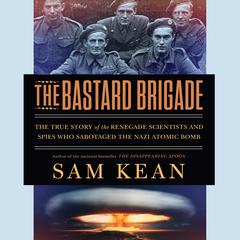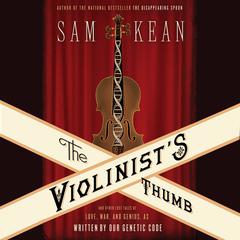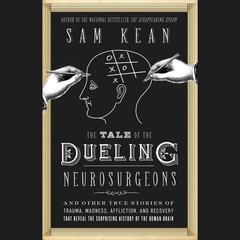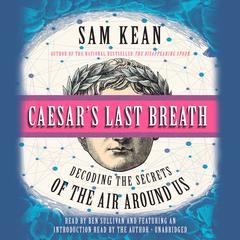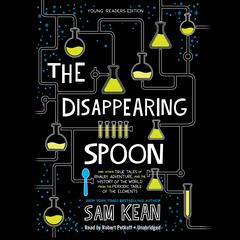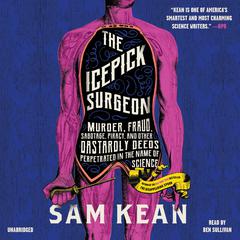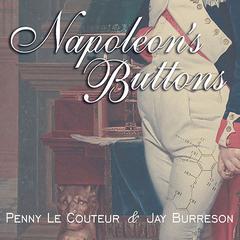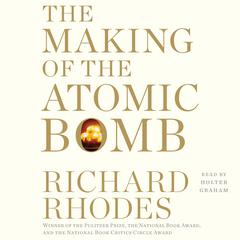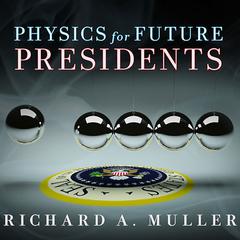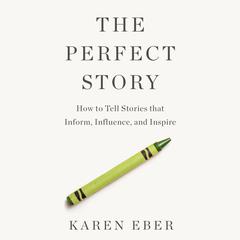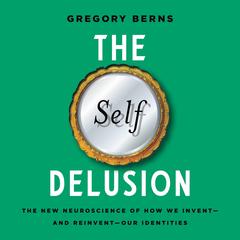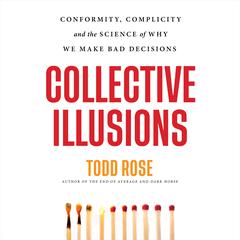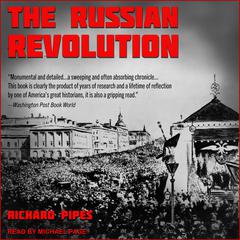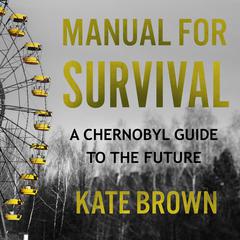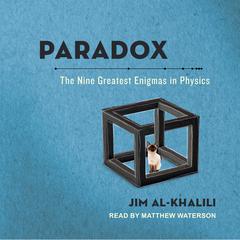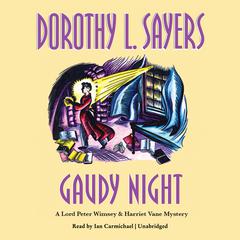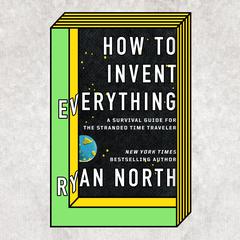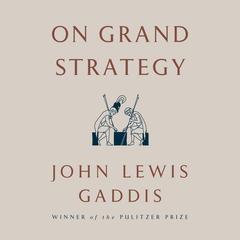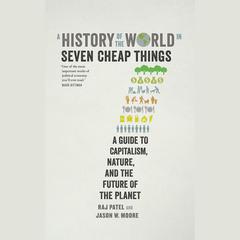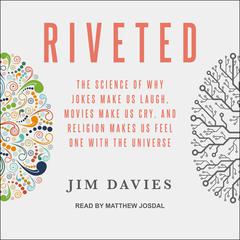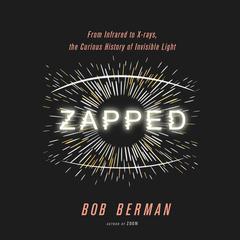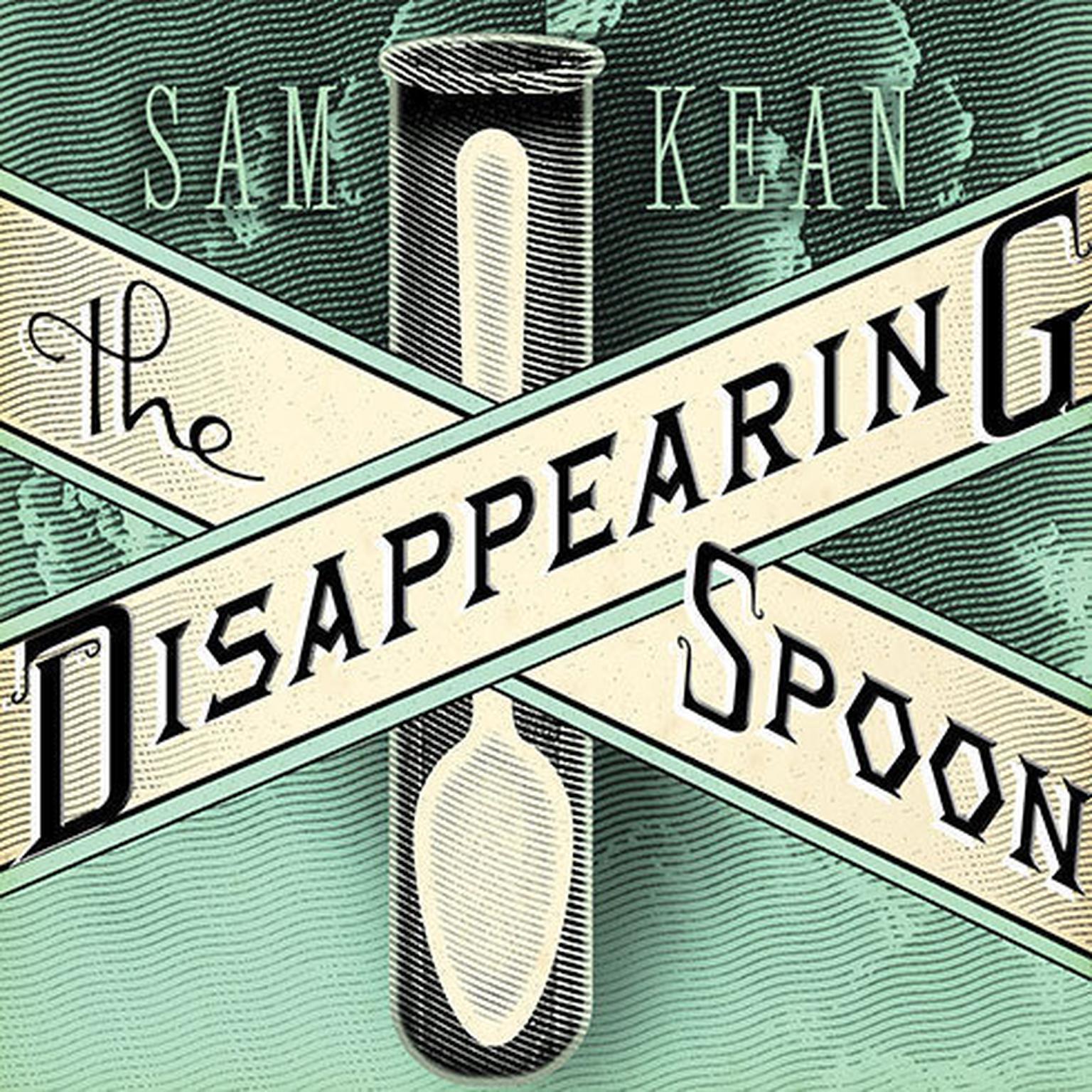 Play Audiobook Sample
Play Audiobook Sample
The Disappearing Spoon: And Other True Tales of Madness, Love, and the History of the World from the Periodic Table of the Elements Audiobook
 Play Audiobook Sample
Play Audiobook Sample
Quick Stats About this Audiobook
Total Audiobook Chapters:
Longest Chapter Length:
Shortest Chapter Length:
Average Chapter Length:
Audiobooks by this Author:
Plot Summary
The Disappearing Spoon: And Other True Tales of Madness, Love, and the History of the World from the Periodic Table of the Elements showcases everyone's favorite scientific organization tool in a way it's never been seen before.
Science writer Sam Kean crosses a discussion of chemistry with humorous forays into human history and seemingly useless trivia. Kean groups the elements into unconventional categories then sets out to explain each one. He tells about its discovery, details unusual properties and discloses the sometimes racy human interest stories related to each element.
The title Disappearing Spoon comes from a tale about gallium, which is a solid metal until you hold it in your hand. When even a slight bit of heat is applied, a gallium spoon would quickly become nothing more than a puddle of molten metal. Other elements are personified for easy understanding. Take carbon, for example. Kean calls carbon "promiscuous," and notes that the element will "latch onto virtually anything."
While most science geeks know how crazy "mad" scientists can be, The Disappearing Spoon tells not only about the dramas of these men and women, but also about history, finance, poison, mythology, war and the arts. While the book does cover all of the elements in the periodic table, it isn't always as well connected and organized as the table itself. Instead, it wanders off on tenuously connected tangents that relate back in some small way to the element at hand.
The Disappearing Spoon, released in 2010, was Kean's first book. It landed on the New York Times national bestseller list. Kean is primarily a science journalist, and has been published in Mental Floss, Slate, and Science. He's also made appearances on NPR's "Radiolab" and "All Things Considered."
"I love the hell out of this book. It seems strange to love a book about the periodic table and chemistry in general (a class I abhorred in high school), but it was well-written and kept my attention for the entire read (which is difficult to do). An excellent read."
— Bayley (5 out of 5 stars)
Publisher Summary
The periodic table is one of man's crowning scientific achievements. But it's also a treasure trove of stories of passion, adventure, betrayal, and obsession. The infectious tales and astounding details in The Disappearing Spoon follow carbon, neon, silicon, and gold as they play out their parts in human history, finance, mythology, war, the arts, poison, and the lives of the (frequently) mad scientists who discovered them.
We learn that Marie Curie used to provoke jealousy in colleagues' wives when she'd invite them into closets to see her glow-in-the-dark experiments. And that Lewis and Clark swallowed mercury capsules across the country and their campsites are still detectable by the poison in the ground. Why did Gandhi hate iodine? Why did the Japanese kill Godzilla with missiles made of cadmium? And why did tellurium lead to the most bizarre gold rush in history?
From the Big Bang to the end of time, it's all in The Disappearing Spoon.
Download and start listening now!
Quotes
-
Kean succeeds in giving us the cold hard facts, both human and chemical, behind the astounding phenomena without sacrificing any of the wonder---a trait vital to any science writer worth his NaCl. A–
— Entertainment Weekly -
“With a constant flow of fun facts bubbling to the surface, Kean writes with wit, flair, and authority in a debut that will delight even general readers.”
— Publishers Weekly -
“Whether explaining why Silicon Valley is not Germanium Valley or reveling in naming-rights battles over a new element, Kean holds interest throughout his entertaining debut.”
— Booklist
The Disappearing Spoon Listener Reviews
- — Rachel Call, 1/13/2022
-
" Who ever thought chemistry would be so interesting? Loved all the back stories on the people and the science is done well too. "
— alp, 2/20/2014 -
" This book has re-kindled my interest in physics. It's a great read. "
— Scott, 2/17/2014 -
" this was a really interesting read...combination history, chemistry and physics. "
— Kimber, 2/17/2014 -
" I enjoyed it - but I did not enjoy it enough to finish it after I misplaced it for a week. "
— Oh_no_not_now, 2/9/2014 -
" Listened to this in audiobook... I enjoyed it, but it wasn't my fav. It lacked a solid narrative to drive me through the entire book. It seemed meandering, but oftentimes into science trivia, which while I enjoy, at the end I felt like: well what was the point of that? So if you're looking for some mild diversion about science I would pick it up, otherwise look elsewhere for some stronger pop science. "
— Audrey, 2/1/2014 -
" Writing style is very lively, quirky use of transitions, and a cornucopia of fascinating minutia and anecdota of scientists' egos and foibles. "
— Christina, 1/24/2014 -
" Enjoyed this book, even when I didn't quite follow all the science. Overall, author did a good job of making the periodic table, and his passion for it and the stories of its development, interesting and accessible. The writing was uneven, though I found most of his writing well crafted. "
— Paula, 1/19/2014 -
" Tough listen "
— John, 1/3/2014 -
" Wonderful book. It was fascinating reading, full of science, history, and humor. Loved it. "
— Camille, 1/2/2014 -
" Some interesting tidbits but overall the history kind of put me to sleep. "
— Ellie, 12/15/2013 -
" So much was over my head, but I enjoyed this a great deal. I have bought another by Kean and can't wait to read that - the topic is DNA. He is funny and tells stories wonderfully! "
— Jodie, 12/7/2013 -
" I am EAGER to recommend this to my science-hungry students. Perfect balance of playful detail and fact that actually intrigues. "
— Sara, 4/14/2013 -
" I will never look at bubbles the same way again. "
— Summer, 4/8/2013 -
" This book should be given to every 10th grade science student. Who knew that the periodic table was filled with such intrigue; would have made class so much more fun! "
— E, 11/18/2012 -
" Some elements are more interesting than others, but a great survey of a worldwide scientific endeavor. "
— Russell, 11/15/2012 -
" Fun. I love Chemistry so this book opened up many stories that were hidden in the table. "
— Jason, 10/21/2012 -
" Very interesting, although toward the end where we run into the little fiddly bits of physics, I tend to get lost. Gossipy and informative! "
— Marfita, 8/31/2012 -
" Fascinating facts and beautifully written. A delight! "
— Nancy, 6/24/2012 -
" Certainly an entertaining tour through The Table. The Parker pen story was fascinating. Did you know that you can currently buy ruthenium (a platinum group metal) for about $100 per troy oz? Only it has no practical uses and don't look very good. "
— Rodneyg, 1/12/2012 -
" Perfect little tidbits about every Element - kept me turning the pages. "
— Georgia, 1/5/2012 -
" This is a super fun book "
— Kim, 5/20/2011 -
" Excellent science book, wonderful introduction to sections of the periodic table. "
— Maria, 5/17/2011 -
" Who knew all this crazy stuff?? I really enjoyed this book and it made me feel smart ha ha. I had to slog through the last couple of chapters but other than that, this book was very readable. "
— Carin, 5/10/2011 -
" To much chemicals not enough history "
— Liz, 5/9/2011 -
" This should be the first book they give chem students. Entertaining even for someone who never took more than the minimum of required science classes. "
— Dave, 5/3/2011 -
" I was hoping for a Bill Bryson, everyman-accessible overview of the periodic table. It was more technical than that, with the later portions of the book difficult for me. "
— John, 4/22/2011 -
" Amazing. The perfect sweet spot between science geeking and crime geeking. "
— Wonderlandkat, 4/21/2011 -
" Interesting and easy to read stories of the people / scientist who have developed the (don't yawn) periodic table. I promise, it is a good read! Not about science, about PEOPLE. "
— Ashland, 4/20/2011 -
" listened to this or should I say slogged through. so much science was over my head but I kept going for the trivia and fun facts mixed in with the history of the periodic table. recommended it to some hs science teachers that I know. "
— Mary, 4/18/2011
About Sam Kean
Sam Kean is the author of several books, including the New York Times bestseller The Disappearing Spoon. He is also a two-time finalist for the PEN/E. O. Wilson Literary Science Writing Award. His work has appeared in The Best American Science and Nature Writing, The New Yorker, The Atlantic, and the New York Times Magazine, among other publications, and he has been featured on NPR’s Radiolab, All Things Considered, Science Friday, and Fresh Air. His podcast, The Disappearing Spoon, debuted at #1 on the iTunes science charts.
About Sean Runnette
Sean Runnette, an Earphones Award–winning narrator, has also directed and produced more than two hundred audiobooks, including several Audie Award winners. He is a member of the American Repertory Theater company and has toured the United States and internationally with ART and Mabou Mines. His television and film appearances include Two If by Sea, Cop Land, Sex and the City, Law & Order, the award-winning film Easter, and numerous commercials.




